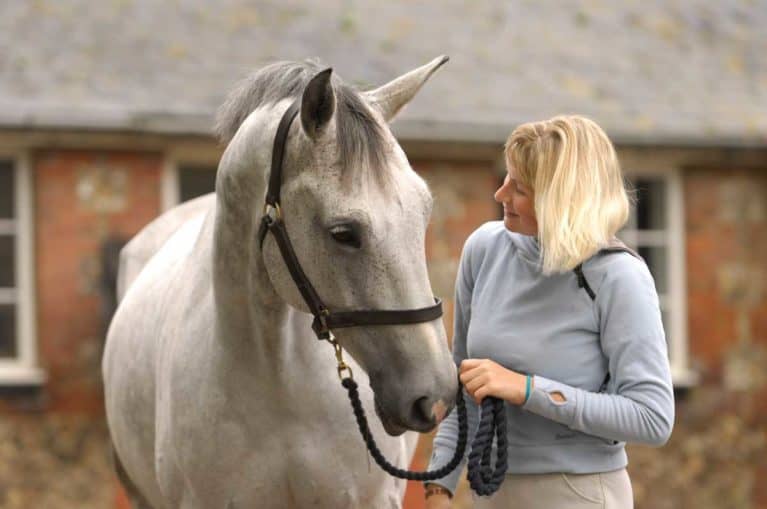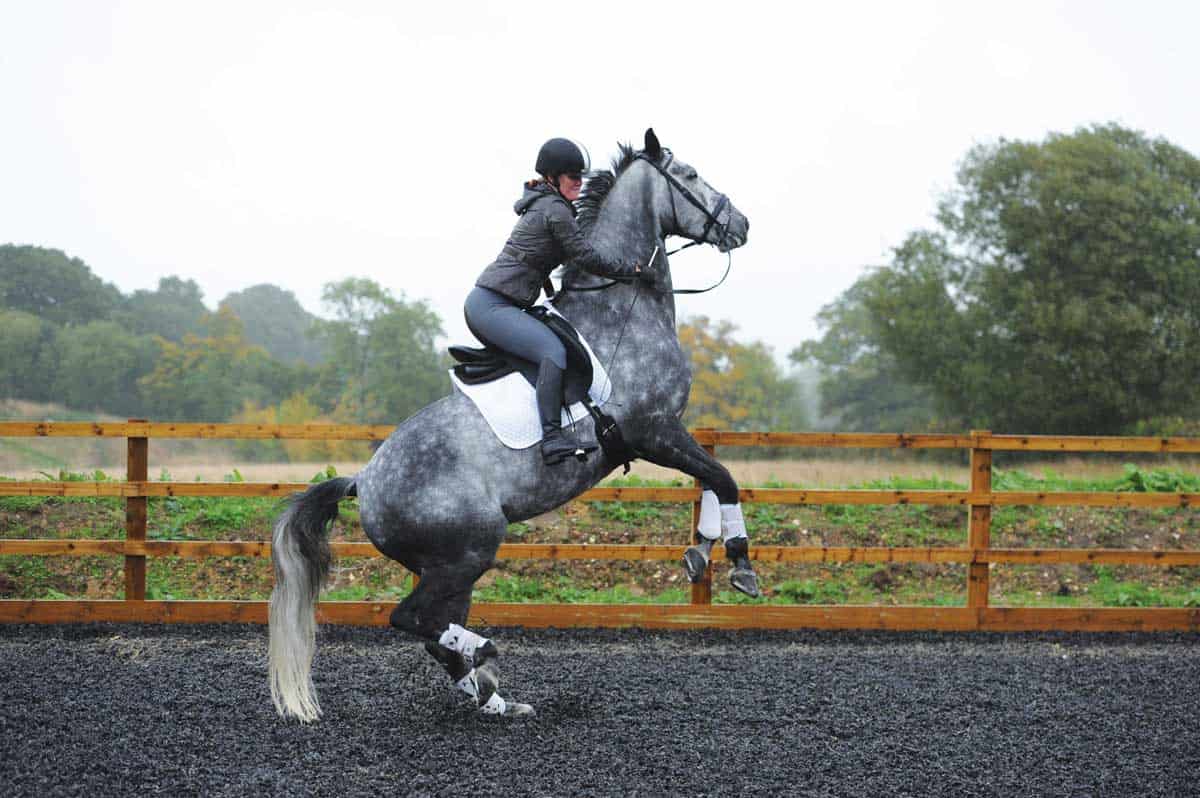Are you suffering from a crisis of confidence with your horse or struggling to cope after an accident? Hypnotherapy could be the answer

Our expert: Fay Briddon DipHyp DipPsy is a Clinical Hypnotherapist, Stress/Anxiety Consultant, NLP Practitioner and Psychotherapist. She competes at county level showing, including at HOYS and Hickstead.
Freud once said that the human mind is like an iceberg. What you see, think, do and feel is merely the tip and there’s much more going on under the surface. This is because your subconscious holds onto what happens to you, both good and bad, and your brain refers to these past experiences in every aspect of your day, without you ever knowing it.
Hypnotherapy is fast becoming a popular choice for sportspeople suffering from crippling nerves
or reduced performance due to negative thoughts or
experiences. It’s a complimentary therapy that works to relax your conscious mind while stimulating your subconscious. By raising awareness of your subconscious through careful techniques, a therapist is able to use positive suggestions to bring about mental changes.
The possibilities for how hypnotherapy can help riders is extensive and includes…
- getting back in the saddle after a bad fall or accident
- if you want to try something different with your horse
- resolving a fear of riding on the road
- if you’ve lost your horse and are struggling with bereavement
- if you’re suffering with low confidence or panic attacks
How can hypnotherapy help?
Have you ever had nights before a competition when, unable to sleep, your nerves build? All you can do is worry about what will happen if you forget your test or fall off, or some other nightmare scenario. By having these thoughts, you’re building a foundation for your nerves and they’ll burrow into your subconscious and continue to undermine your confidence on competition day. Being in a negative mindset means things are more likely to go wrong and will affect you more when they do, so the cycle continues.
Hypnotherapy teaches you to take control of your thoughts. Your brain is simply trying to protect you, but in doing so is over-reacting and causing you unnecessary stress. Working with a hypnotherapist can help you learn about stress within your mind and body, how and why it’s there, and how you can work together to change your thought paths. It helps to reset your thoughts, change the negative language you use, and retrain your mind and body to respond differently to stress.
Did you know?
Because your horse is so aware of how you’re feeling, his performance will be affected if you’re tense or anxious.
Getting to know each other
Before you start hypnotherapy sessions, your therapist will arrange a short consultation that allows you to meet them, see their workspace and ask any questions you might have prior to treatment. A connection between therapist and client is important – you need to feel you can trust them and they must feel that they can work well with you. Without this relationship, the treatment won’t work. Once you’ve both asked all the necessary questions and worked out what you hope to achieve from the treatment, your therapist can use this to plan out your first full-length session. Everyone is different and has their own personality, so treatment plans are unique.
Working together
During a hypnotherapy session, your therapist works as a guide, accessing your subconscious and resetting some of the cogs you’ve said aren’t working for you. Think of it as a mental MOT.
Sessions are usually an hour long and begin with relaxation techniques, which will make you start to feel quite drowsy and heavy. Once you’re relaxed, your therapist is able to talk about previously discussed positive suggestions and changes, working towards the goal that you’ve agreed together. Then they’ll slowly bring you back into the room and have a chat with you to ensure you’re fully awake and aware. You may then be given something to work on before your next session – this could be listening to a CD, emotion freedom therapy (EFT) techniques or some thought-stopping tactics.
Everyone reacts differently to treatment and while you could feel an improvement straightaway, it might take several sessions. A lot of the work is done by simply talking with your therapist, because this gives you the opportunity to put your fears into perspective. Emotions from your past that you haven’t dealt with may surface, which can be upsetting, but it’s all part of releasing those negative influences. Without dealing with these damaging emotions, they’ll manifest themselves in other areas of your life.
The road to recovery
How long the results last varies because everybody’s mind works differently. I had a client who was afraid of jumping after a bad fall – she had four sessions a year ago and is now competing at international level without any problems. Other people suffer with panic attacks and come back for a top up before doing something they feel may cause anxiety. What’s important is that you find a way to maintain the positive changes, whether it’s with the help of more sessions or on your own.
Myth busters
Hypnotherapy is often associated with stage performances that cause people to do silly things, such as dancing like a chicken, that they’re unable to remember later. This means there are a lot of misconceptions about what it is and how it actually works.
Hypnotherapy is voodoo magic and doesn’t work
It’s important to remember that hypnotherapy has been scientifically studied for many years and is based on the work of many famous psychologists, such as Sigmund Freud.
I won’t be able to snap out of a hypnotic state
Any time there’s an emergency, a person can naturally come out of the hypnosis by opening their eyes and stretching or speaking.
I won’t be in control of what’s happening to me
Hypnotherapy is a collaborative experience where you retain full control and all treatment is discussed beforehand. It doesn’t cause you to be out of control, but instead does the exact opposite and puts you back in the driving seat.
My therapist is just going to make me go to sleep
Hypnosis isn’t an unconscious state of sleep. In fact, some people report having a heightened sense of awareness, concentration and focus, and can even hear more acutely during a session.
Hypnotherapy is a quick-fix solution
Hypnotherapy isn’t a miracle cure – it takes work from both you and your therapist, and everyone makes progress at their own rate.
Believe in yourself
No matter the problem you’re facing, there’s always the ability within yourself to make the change you want. I find it so heart-warming that even though the riders I see may have really bad anxiety, they still ride and compete because they love their sport and their horses so much. Everyone has the ability to experience and enjoy hypnotherapy, providing they’re committed to it and want to change. Any scepticism or hesitation will cause certain failure of the treatment. However, it isn’t a quick fix – just as fears, nerves and habits take time to develop, so will change.
Top tip
When trying to find a therapist, it’s important to ensure they have full insurance, membership of an industry professional body and a recognised qualification, such as a Diploma in Hypnotherapy (DipHyp). You can find a list of therapists local to you at hypnotherapy-directory.org.uk









